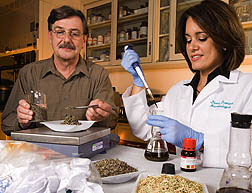 New Jersey Governor Jon Corzine has announced he wants to triple the goal for the amount of offshore wind power the state will produce by 2020.
New Jersey Governor Jon Corzine has announced he wants to triple the goal for the amount of offshore wind power the state will produce by 2020.
Corzine called for the higher amount as he announced the selection of Garden State Offshore Energy (GSOE) as the recipient of a grant incentive to build New Jersey’s first offshore wind pilot:
“Our draft Energy Master Plan identified a goal of 1,000 MW of offshore wind by 2020,” said Governor Corzine. “We listened closely to our stakeholders, considered current economic conditions and the dynamic state of offshore wind technology, and we knew we had to go a lot further.
“Today, I am announcing that we’re not just doubling our commitment, we’re tripling it. New Jersey will support and encourage the development of 3,000 MW of wind power off its coast by 2020, which will be 13 percent of its total electricity. And we will get to 1,000 MW by 2012.”
 Garden State Offshore Energy, a joint venture of PSEG Renewable Generation and Deepwater Wind, was the firm selected through a competitive grant solicitation process. That process concluded last Friday when the NJ Board of Public Utilities voted to award a $4 million grant to Garden State Offshore Energy (GSOE).
Garden State Offshore Energy, a joint venture of PSEG Renewable Generation and Deepwater Wind, was the firm selected through a competitive grant solicitation process. That process concluded last Friday when the NJ Board of Public Utilities voted to award a $4 million grant to Garden State Offshore Energy (GSOE).
The GSOE project will be a $1-billion, 345MW wind farm southeast of Atlantic City, 16 miles from the coast. When completed, it would power approximately 125,000 homes annually.


 An Iowa-based ethanol company is working to develop a pipeline that is capable of carrying both ethanol and biodiesel, as well as some other key liquids.
An Iowa-based ethanol company is working to develop a pipeline that is capable of carrying both ethanol and biodiesel, as well as some other key liquids.
 Delaware’s Public Service Commission has given the OK on some land-based wind contracts between Delmarva Power and two developers.
Delaware’s Public Service Commission has given the OK on some land-based wind contracts between Delmarva Power and two developers. You can now travel from the Great Lakes to the Gulf Coast, entirely on biodiesel and ethanol.
You can now travel from the Great Lakes to the Gulf Coast, entirely on biodiesel and ethanol. “Tennessee has already been working to make these clean, renewable biofuels available to more motorists traveling in our state,” said Gov. Phil Bredesen. “I’m pleased to see us join forces with other states to make Interstate 65 the first corridor in the country to make biofuels widely available.”
“Tennessee has already been working to make these clean, renewable biofuels available to more motorists traveling in our state,” said Gov. Phil Bredesen. “I’m pleased to see us join forces with other states to make Interstate 65 the first corridor in the country to make biofuels widely available.” A biodiesel plant that will make biodiesel from animal fats has broken ground in Louisiana.
A biodiesel plant that will make biodiesel from animal fats has broken ground in Louisiana.

 Just when I thought we would not get much on renewable energy in tonight’s presidential debate from Belmont University in Nashville, a question from the crowd has started the conversation in earnest. A lady asked if the candidates would take the same quick call-to-action approach to solve the looming global warming crisis as we saw in the recent financial crisis.
Just when I thought we would not get much on renewable energy in tonight’s presidential debate from Belmont University in Nashville, a question from the crowd has started the conversation in earnest. A lady asked if the candidates would take the same quick call-to-action approach to solve the looming global warming crisis as we saw in the recent financial crisis. Presidential candidates Republican Sen. John McCain and Democrat Sen. Barack Obama are back at this evening, debating from the campus of Belmont University in Nashville, Tenn… and I’m here on my couch watching and listening carefully to what they say, paying special attention to what they say about renewable energy.
Presidential candidates Republican Sen. John McCain and Democrat Sen. Barack Obama are back at this evening, debating from the campus of Belmont University in Nashville, Tenn… and I’m here on my couch watching and listening carefully to what they say, paying special attention to what they say about renewable energy. USDA Agricultural Research Service scientists are investigating the possibilities at the agency’s Western Regional Research Center in Albany, Calif.
USDA Agricultural Research Service scientists are investigating the possibilities at the agency’s Western Regional Research Center in Albany, Calif.